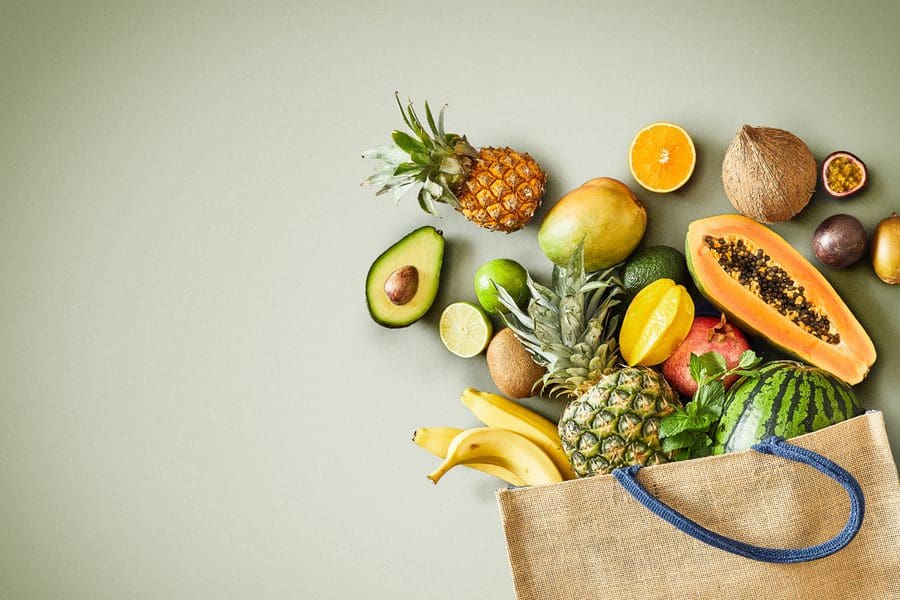For many, eating healthy is just as important as saving cash. Some wellness gurus would tell you that you need to buy over-priced organic produce and cold-pressed juices to treat your body right — but it’s possible to eat well without breaking the bank. Here are our best tips for a balanced diet on a limited budget.
Shop the perimeter of the grocery store.
One quick and easy way to eat healthier is to do most of your shopping in the outer perimeter of your grocery store. The aisles are where most of the processed, packaged foods live, while the perimeter is more likely to be stocked with fresh produce, proteins, and dairy (or dairy substitutes). Do most of your shopping around the edges, and you will eat healthier without even realizing it!
Eat more plant-based protein.
When’s the last time you didn’t gawk at the price of meat or fish at your grocery store? That’s just one compelling reason to eat more protein like beans, tofu, lentils, and plant based proteins.
Another reason to switch to plant-based protein? Studies show that plant-based diets can lower your cholesterol, blood pressure, and body-mass index. Time to sign up for the next Veganuary, stat!
Stick to frozen fruits and vegetables.
You may think of frozen foods as generally unhealthy, but when it comes to unprocessed fruits and vegetables, buying frozen over fresh may be better for you and your wallet.
Freezing fruits and veggies can help retain the nutrient content in your body, meaning you may actually get more vitamins and antioxidants from your frozen fruit smoothie than from fresh produce, if you use the frozen fruit within a year.
As for cost-effectiveness, the fast-freezing process ensures that frozen fruits and veggies stay in season all year round, cutting costs for you and the grocery store.
Get your favorites in bulk.
One of the best ways to save on your favorite whole foods is to purchase them in bulk. Items like oatmeal, brown rice, nuts, and seeds last a long time on the shelf and can be purchased in bulk to save money.
Stores like Costco and BJ’s require a membership, but you’ll quickly earn your money back in cost savings on bulk items. However, if you don’t want to splurge, even some mainstream grocery stores have a bulk section where you can fill your cart with your faves.
Buy the Dirty Dozen organic.
When it comes to organic fruits and veggies, some lifestyle gurus will tell you that everything needs to be organic to reap the health benefits of eating pesticide-free. But the reality is that not all produce is exposed to the same number of pesticides during the growing process.
That’s why each year, the Environmental Working Group (EWG) releases its Dirty Dozen and Clean Fifteen lists. The Dirty Dozen describes the 12 fruits and veggies most often exposed to pesticides, while the Clean Fifteen is a list of 15 items grown fairly pesticide-free.
You can save a lot of money by choosing to buy just the Dirty Dozen organic while keeping the rest of your produce conventionally grown.






